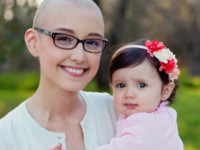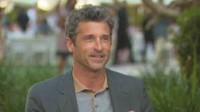True Acupuncture Shows Promise for Patients with Head and Neck Cancer
 A phase III study published in JAMA Network indicated that true acupuncture resulted in significantly fewer and less severe radiation-induced xerostomia (RIX) symptoms 1 year after treatment compared to standard care control (SCC) in patients with head and neck cancer.1
A phase III study published in JAMA Network indicated that true acupuncture resulted in significantly fewer and less severe radiation-induced xerostomia (RIX) symptoms 1 year after treatment compared to standard care control (SCC) in patients with head and neck cancer.1
This research suggests that acupuncture may be considered for the prevention of RIX, however further studies are necessary to confirm clinical relevance and generalization of this finding, as well as to evaluate inconsistencies in response to sham acupuncture between patients in the U.S. and China.
“Although a cost-benefit analysis was not an aim of the current study, acupuncture is minimally invasive and has a very low incidence of adverse effects,” the researchers wrote.
In this 2-center, phase III cohort of 399 patients, 112 patients received true acupuncture, 115 received sham acupuncture, and 112 patients with SCC. The adjusted least square mean xerostomia score in the true acupuncture group (26.6 [17.7]) was significantly lower than in the SCC group (34.8 vs 18.7; P = 0.001; effect size = -.044) and marginally lower but not statistically significantly different from the sham acupuncture group (31.3 [18.6; P = 0.06; effect size = -0.26).
True acupuncture was significantly different from sham acupuncture only at Fudan University Cancer Center, Shanghai, China, and no adverse events (AEs) were reported at the University of Texas MD Anderson Cancer Center were related to acupuncture. Only 1 AE related to acupuncture was reported at Fudan (pain from needling at 1 site in the ear).
In an accompanying editorial written by Matthias Karst, MD, PhD, Hannover Medical School, and Changwei Li, MD, PhD, MPH, University of Georgia College of Public Health, it was suggested that because in China most patients are well aware of the differences in sham acupuncture and true acupuncture, their confidence in the sham treatment decreased.2
“Findings in this study by Garcia et al support the idea that acupuncture exerts its effects not only or not mainly by needle site activity and specific neurophysiological mechanisms but also by expectations, conditioning, and suggestibility of clinicians and patients,” Karst and Li wrote.
Moreover, the perception of the effects of true acupuncture vs sham acupuncture may have a differential effect at the central nervous system level and could be moderated by culture. A 2008 study reported that cultural background moderates the activation of brain networks engaged during simple tasks. The placebo effect was also found to differ between Chinese and U.S. acupuncture sessions in another study.
However, for primary analysis researchers were interested in the sample as a whole; differentiation by group was included as part of secondary post hoc analysis.
Dental complications, dysgeusia, dysphagia, odynophagia, and difficulty sleeping and speaking affect quality of life and are often associated with RIX. There is currently no reliable method to treat established RIX, though there is some success with cytoprotection and physical techniques designed to reduce salivary gland exposure during the delivery of radiation therapy.
References:
1. Garcia MK, Meng Z, Rosenthal DI, et al. Effect of True and Sham Acupuncture on Radiation-Induced Xerostomia Among Patients With Head and Neck Cancer. JAMA Netw Open. doi:10.1001/jamanetworkopen.2019.16910.
2. Karst M, Li C. Acupuncture – A Question of Culture. JAMA Netw Open. doi:10.1001/jamanetworkopen.2019.16929.


